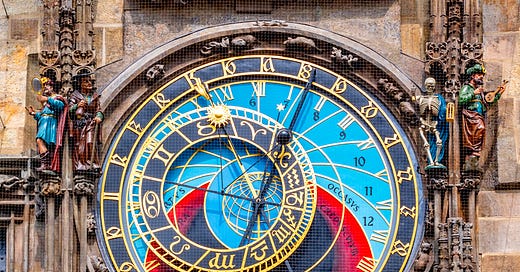How Clock Time Reshaped the World and Work
Issue 146, February 8, 2024
We think it’s safe to say that most of us take clock time for granted. Timepieces are ubiquitous; they are on our stoves, microwaves, refrigerators, walls, radios, wrists, and mobile phones. From 1300 to 1600, they were the centerpiece of small towns placed on towers and public buildings, which dramatically changed how people ordered their lives. So fast forward and timepieces have become so affordable and mobile phones are so ubiquitous that they have replaced watches, all bringing the measurement of time into clear focus. Without getting into the physics of timepieces, what we probably don’t realize is that clock time changed our lives dramatically and changed the way work was measured and evaluated.
The Art of Time Keeping
But first, let’s step back into a moment in time. Manmade clocks date back to sundials created 5,500 years ago by the ancient Egyptians. Then they also invented water clocks in 1417–1379 BC to measure time when it was dark. Early mechan…
Keep reading with a 7-day free trial
Subscribe to 20Forty’s Newsletter to keep reading this post and get 7 days of free access to the full post archives.





